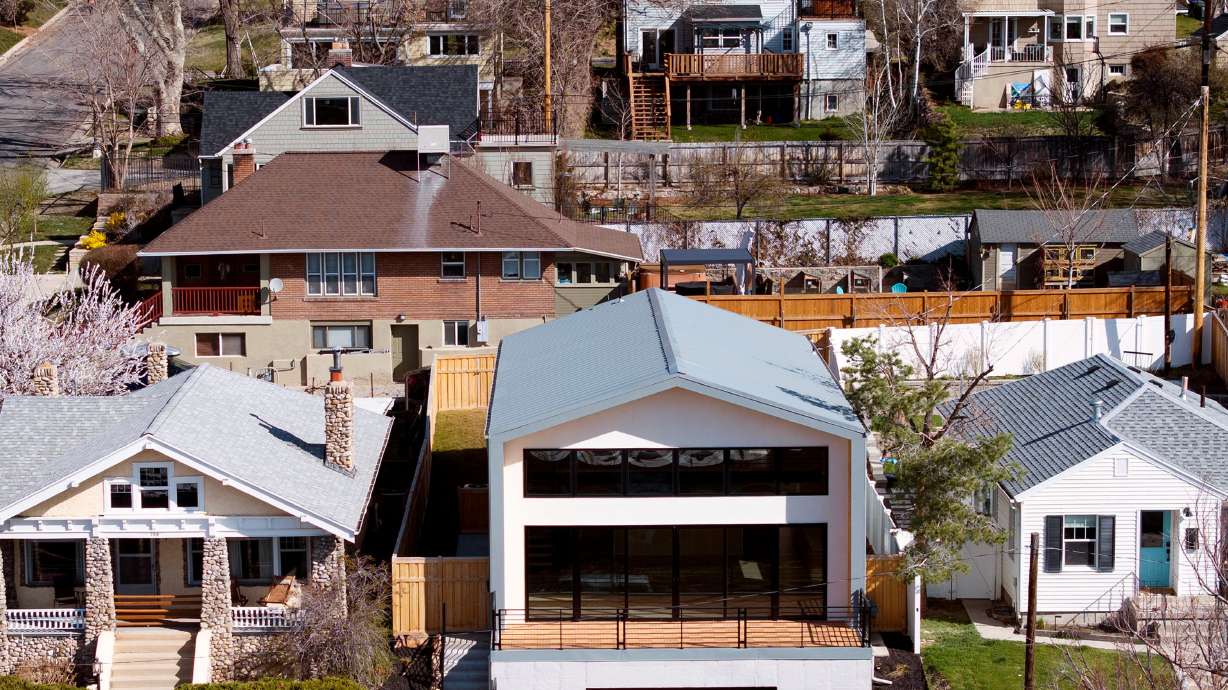Estimated read time: 3-4 minutes
- President Donald Trump's tariffs impact mortgage rates, which have fallen to 6.63% recently.
- Realtor.com warns tariffs could keep inflation high, affecting future mortgage rates.
- A Zions Bank analyst notes lower rates may boost real estate demand and prices.
SALT LAKE CITY — Mortgage rates have slowly been sliding downward since reaching above 7% in January, but will President Donald Trump's sweeping new tariffs reverse that trend?
Mortgages fell to their lowest rate in more than five months on Thursday, a day after Trump launched a trade war that sent global markets spiraling down. Mortgage News Daily reported the average 30-year fixed-rate mortgage at 6.63%, down 0.12% from Wednesday.
And the U.S. weekly average 30-year fixed-rate mortgage was also down to 6.64% as of Thursday, according to the Federal Home Loan Mortgage Corporation, better known as Freddie Mac.
The 0.01% drop from last week's average of 6.65% was described in a Freddie Mac post as a continuation of a "tick down" in the cost of financing a home, but the post didn't mention the economic turmoil over tariffs.
"Over the last month, the 30-year fixed-rate has settled in, making only slight moves in either direction. This stability is reassuring, and borrowers have responded with purchase application demand rising to the highest growth rate since late last year," the post said.
But Realtor.com warned the new tariffs that include a 10% tax on nearly every import to the United States "could also impact mortgage rates if they keep inflation higher for longer, as many economist fear they will."
Prolonged inflation is seen as pushing the Federal Reserve "to reduce or reverse future cuts to its policy rate, which all else (being) equal would keep mortgage rates higher for longer," the Realtor.com analysis stated.
Inflation that's been "hotter than expected" has kept mortgage rates above 6.6% since last October, according to the analysis, which also concluded those rates could decline "if tariffs drive the economy into recession, as some economists fear."
Mortgage rates have already dropped overnight as a result of the economic fallout, said Jeremy Holmgren, Zions Bank state mortgage manager.
Holmgren declined to quote specific rates but said a homebuyer who locked down a mortgage Wednesday before Trump's announcement could be paying as much as 25 basis points (a basis point is one-hundredth of 1%) more than if they'd waited until Thursday.
While that may have been an "immediate knee-jerk reaction" to the new tariffs, he said mortgage rates should continue to improve.
"I think in the short term we do see mortgage rates come down, for sure, because of what this is going to do to the stock market. Unfortunately, what's kind of bad for the economy and bad for the overall market is typically good for mortgages, for mortgage rates," Holmgren said.
But lower mortgage rates could heat up the real estate market fast, he said.
"People start to feel more comfortable about buying homes. People start to say, 'Hey, let's actually sell our home because there's more buyers now and rates are more attractive," Holmgren said, with the increased demand likely leading to higher housing prices.
He said would-be homebuyers holding out to see how low mortgage rates go are taking a gamble.
"If you're willing to take that risk and say, 'Well I think rates are going to come down and I'm going to wait for it,' great. That could be beneficial," Holmgren said. "The flip side of that is prices could go up and homes are going to cost more."
Besides more buyers and sellers, he said the lower mortgage rates could spark more refinancing. That typically makes sense, Holmgren said, once rates are at least a percentage point lower than a current loan.









